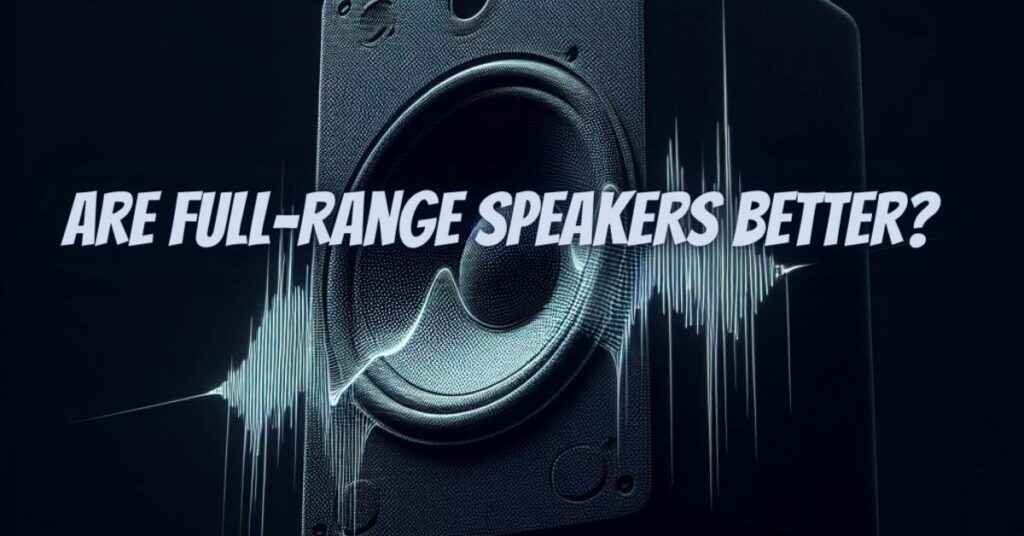When it comes to choosing speakers for your audio setup, you’re often confronted with various options, including full-range speakers. But are full-range speakers better than other speaker types? In this comprehensive article, we will explore the advantages and disadvantages of full-range speakers, helping you understand when they may be a superior choice and when other speaker configurations might be more suitable.
The Pros of Full-Range Speakers
- Simplicity: Full-range speakers are known for their simplicity. They typically feature a single driver that is designed to reproduce a wide range of frequencies. This simplicity can result in a straightforward setup and ease of use.
- Coherence: Because full-range speakers use a single driver to reproduce all frequencies, they often provide excellent coherence in sound reproduction. There are no crossover points where sound can be misaligned or phase issues can arise.
- Cost-Effective: Full-range speakers are often more budget-friendly than multi-driver configurations, making them an attractive option for those with cost constraints.
- Efficiency: The absence of a crossover network and additional drivers can make full-range speakers more efficient in terms of power usage. They can produce substantial sound output with lower-wattage amplifiers.
- Ideal for Certain Applications: In specific applications, such as portable speakers and compact audio setups, full-range speakers can be the ideal choice due to their simplicity, size, and ability to provide balanced sound.
The Cons of Full-Range Speakers
- Limited Frequency Range: While full-range speakers aim to cover a broad spectrum of frequencies, they may not excel in reproducing extremely low bass frequencies or extremely high treble frequencies. In scenarios where extended frequency response is critical, specialized speakers may be more suitable.
- Less Customization: Full-range speakers offer limited customization options. Unlike multi-driver systems with crossovers, you have less control over individual frequency bands, making it challenging to fine-tune the sound to your liking.
- Sound Quality Trade-offs: Achieving a wide frequency response with a single driver can involve trade-offs in sound quality. While full-range speakers provide coherence, they may not offer the same level of detail and precision as specialized drivers for different frequency ranges.
- Size Limitations: Due to their design, full-range speakers may have size limitations that affect their ability to produce deep bass or extremely high treble. In larger rooms or for applications requiring high sound pressure levels, larger speakers or additional drivers may be needed.
- Genre Specific: Full-range speakers are better suited for certain music genres and applications, such as jazz, acoustic, or portable speakers. For genres that demand extreme bass or high-frequency precision, other speaker configurations may be more appropriate.
Whether full-range speakers are better depends on your specific audio needs, preferences, and the application. They offer simplicity, coherence, cost-effectiveness, and efficiency, making them valuable choices in various scenarios. However, they may have limitations in terms of frequency response, customization, and sound quality compared to multi-driver systems.
To determine if full-range speakers are better for you, consider factors like your budget, room size, music preferences, and listening environment. Full-range speakers can provide excellent performance in the right context, but for those seeking specialized sound characteristics or extreme frequency responses, other speaker configurations may offer a better fit. Ultimately, the choice of speakers should align with your unique audio priorities and desired listening experience.


